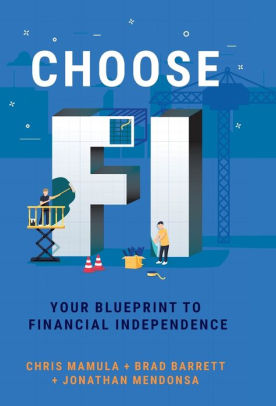Jumbo Shrimp, Bitter-Sweet and Good Debt
If you have somehow come across this blog about early retirement planning and achieving financial independence, you probably have already figured out the basics of how destructive debt can be to your wealth building process. Despite this, almost everyone I know, and even much of the other personal finance advice I see, advocates the idea that there is “good debt”. We reject this entirely and this attitude is probably the biggest reason we are preparing for early retirement with a lifestyle that is not particularly frugal. We see good debt as an oxymoron right up there with jumbo shrimp, cheerful pessimist and bitter-sweet. Instead of allowing the idea of “good debt” to enter our thinking, we view any debt as bad as a default position. In some cases taking on some debt may be useful. An example would be using a mortgage to buy a sensible home instead of renting if this is the right decision for you. Debt may even on occasion be used to your advantage, such as to buy investment real estate or pay for college tuition if expected benefits will outweigh the costs. Just don’t forget the costs!
The problem when the idea of “good debt” creeps into people’s heads is that suddenly they are taking out $500,000 mortgages when they can’t afford a $200,000 home. They are financing spring break trips, fancy apartments, cable T.V. and smart phones with student loans originally meant for the college tuition they already couldn’t afford.
EVERY TIME you borrow someone else’s money, you must remember that you are giving up a piece of your freedom. You must now figure out some way to make a payment each month when the debt comes due. EVERY TIME you borrow money, you are making the object you will purchase more expensive by tacking on the cost of interest payments. You will also add risk to anything you do by trying to leverage debt. It is true that if done right, debt can be used to put down a small amount of money to get big benefits. It is also a fact that if things don’t go according to plan that the leverage of interest works the other way, digging you an even bigger hole to get out of.
If you are like most people, you either are or have been paying interest on school loans, car loans and mortgages because this is the conventional way of doing things. Just remember that doing things the conventional way, you will almost guarantee yourself conventional results (40+ hour work weeks for 40-50 years). Doing just a few things differently than the masses will give you completely different results.
We’ll share some strategies that we’ve used to limit our debt as much as possible without sacrificing much (or even living a better lifestyle than most people) while building our assets. Even people who have started to figure out the basics of avoiding hyper-consumerism that plagues America have several key areas where they commonly get in trouble with debt (paying for college, paying for a home and buying cars are the most common). In the future we’ll devote entire posts to each topic to do each justice. We’ll show how with a little creativity, hard work, patience and understanding of the math behind these decisions, you can do things differently than most.
Until you get the concept of spending less than you earn and then investing the excess, most of this blog and others like it will make little sense to you. However, once you get it, you’ll find that you have stopped swimming against the current and will be working with it. Instead of swimming upstream just to stay in place, the current will sweep you to inevitable success. Everything else is actually very simple.

Take a minute and reflect on that paragraph for just one minute. I’ll wait.
Once you understand and apply the concept of avoiding debt and living within your means, you will have overcome the biggest financial hurdle that most people face. The rest of this blog (investing, tax planning, risk assessment, modeling lifestyle) is just fine tuning.
Before we break down the math and get into the specific emotions, behaviors and misconceptions that cause people to make mistakes with debt, take a minute to soak in the message of this post and try to change your overall approach to debt beginning today. Remember, “good debt” is an oxymoron. There is no “good debt”.
*Thanks for reading. If you enjoyed this content, you can find my current writing at Can I Retire Yet?. Enter your email below to join our mailing list and be alerted when new content is published.

2 comments on Jumbo Shrimp, Bitter-Sweet and Good Debt
Comments are closed.